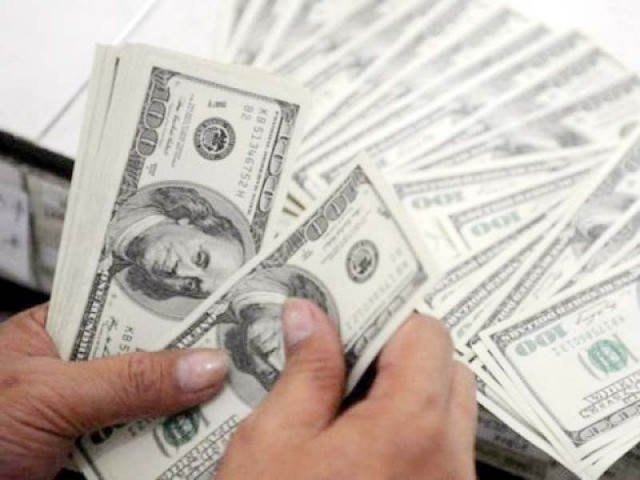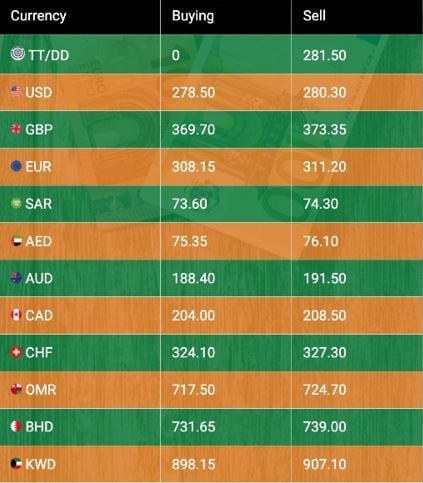USD exchange rates today: Rally ends as Rupee weakens
PKR fluctuates as USD trades at Rs 278.50, GBP at Rs 369.70, and KWD remains the highest at Rs 898.15 in the market.

The latest currency exchange rates against the Pakistani rupee reveal fluctuations, with the US Dollar being bought at Rs 278.50 and sold at Rs 280.30
Meanwhile the GBP's buying rate stands at Rs 369.70 and its selling rate at Rs 373.35.
On the other hand, Euro is being traded at Rs 308.15 for buying and Rs 311.20 for selling.
Meanwhile, among the Gulf currencies, such as the Saudi Riyal (SAR) and the UAE Dirham (AED) are trading at Rs 73.60 and Rs 75.35 for buying, and Rs 74.30 and Rs76.10 for selling, respectively.
Meanwhile, the Australian Dollar (AUD) is being bought at Rs 188.40 and sold at Rs 191.50.
Among other currencies, Canadian Dollar (CAD) is available for Rs 204.00 on buying and Rs 208.50 on selling.
In terms of more valuable currencies, the Swiss Franc (CHF) is trading at Rs 324.10 for buying and Rs 327.30 for selling.
Premium currencies such as the Omani rial, Bahraini dinar, and Kuwaiti dinar continued to hold their higher values
The Omani Rial (OMR) and Bahraini Dinar (BHD) remain strong, with buying rates at Rs 717.50 and Rs731.65, and selling rates at Rs 724.70 and Rs739.00, respectively.
Kuwaiti Dinar (KWD) continues to be the highest-valued currency, with buying at Rs 898.15 and selling at Rs 907.10.

NBP: Exchange Company Limited
Earlier yesterday, The International Monetary Fund (IMF) approved a $7 billion bailout package for Pakistan under its Extended Fund Facility (EFF).
This is the 25th IMF programme in Pakistan’s history, aimed at achieving macroeconomic stability, increasing tax revenues, and addressing fiscal risks.
The package requires Pakistan to impose new taxes, reduce subsidies, and transfer key responsibilities like health and education to provincial governments. Key reforms include raising the agricultural income tax to align with federal rates, cutting subsidies on electricity and gas, and controlling provincial budgets.
Despite this, the IMF programme does not fully address Pakistan's external and domestic debt restructuring needs, which remain a significant challenge for the country’s economic sustainability.
Pakistan, having requested climate financing earlier, was previously ineligible due to lacking a larger programme. Finance Minister Muhammad Aurangzeb plans to discuss the new programme with the IMF during his visit to Washington next month.
Pakistan now qualifies for $1 to $1.5 billion in concessional financing, having met the IMF and World Bank's climate assessment criteria.


















COMMENTS
Comments are moderated and generally will be posted if they are on-topic and not abusive.
For more information, please see our Comments FAQ